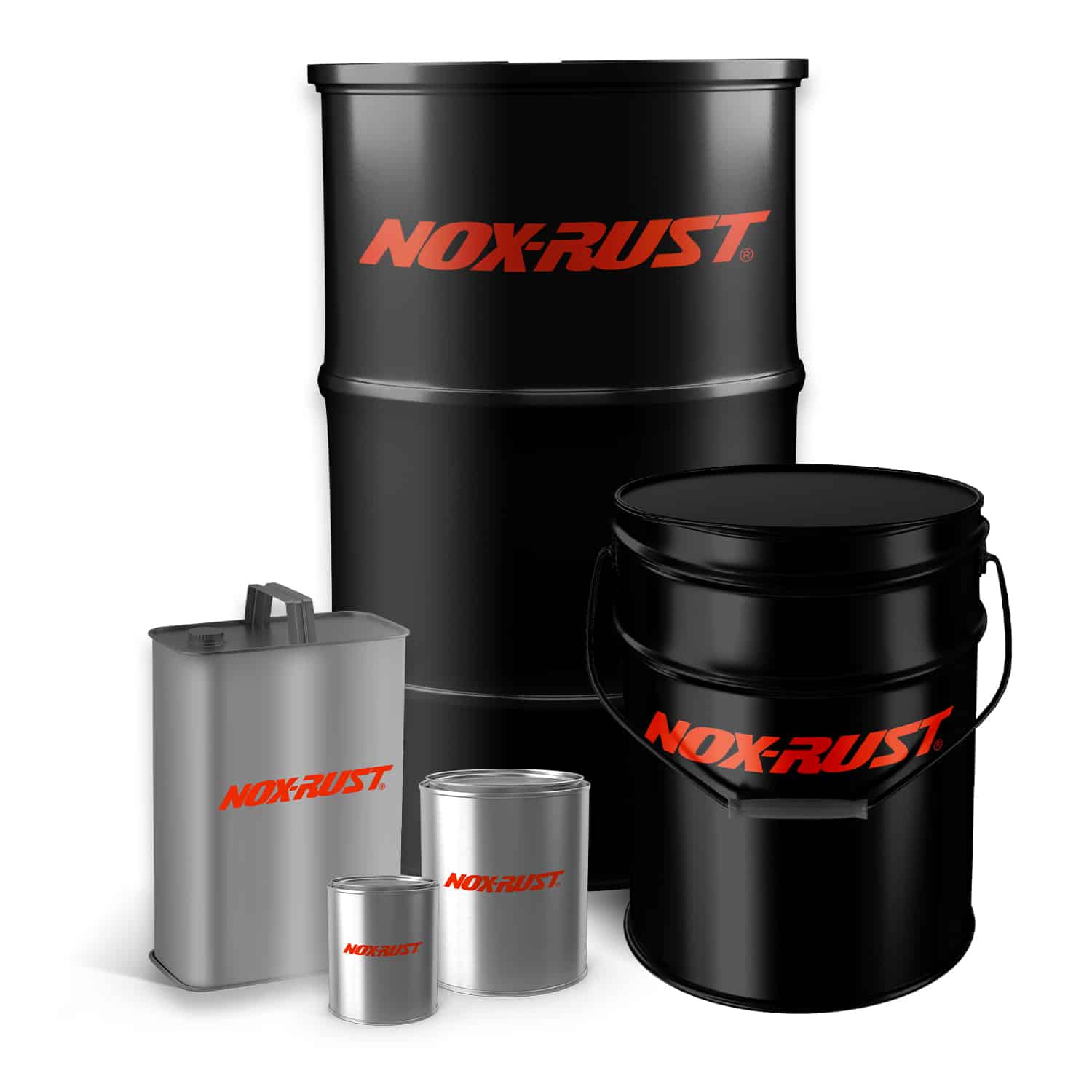Nox-Rust VCI 10
For more information about this product or bulk order pricing please click the request a quote button.
Product Information
| Weight | 445 lbs |
|---|---|
| Dimensions | N/A |
| Size | Drum, Pail |
Description
Nox-Rust VCI 10 is a high-performance preservative oil designed to protect engines, machinery, and metal parts from rust and corrosion caused by moisture and airborne contaminants. It functions as a volatile corrosion inhibitor (VCI), meaning it releases protective vapors that form an invisible molecular barrier on metal surfaces, preventing oxidation. This makes it especially useful for storage and transport applications where metal parts are exposed to fluctuating environmental conditions. The oil can be applied by spraying or dipping and is often used in enclosed spaces, such as engine cavities or fuel systems, to ensure long-lasting protection. Since it is formulated to burn off or be consumed during normal engine operation, parts treated with Nox-Rust VCI 10 are generally ready for immediate use without requiring extensive cleaning.
Physical and Performance Properties
- Viscosity at 100°F: 210 SUS
- Pour Point: -10°F
- Flash Point: 300°F
- Specific Gravity: 0.9058
- Film Thickness at 77°F: 0.5 mils
- Approximate Coverage: 3,000 sq. ft. per gallon
- Volatile Content: 6%
Corrosion Protection
- Humidity Test (JAN-H-792, 100% RH @120°F): 300 hours
- Vapor Phase Protection (MIL-P-46002A Procedure): Pass
Functionality
Nox-Rust VCI 10 is a volatile corrosion inhibitor (VCI) oil that evaporates into the air and neutralizes airborne ions, preventing them from reacting with metal surfaces. This makes it effective in enclosed environments where it can protect metal parts from rust formation.
Application and Usage
- Application Methods: Can be spray-applied or dip-applied.
- Temperature Considerations: Should be applied when both the product and ambient temperature are between 50°F and 95°F.
- Storage: Must be kept in airtight spaces for effectiveness, as its active ingredients are volatile.
- Engine Protection: Used as a fogging oil in engines to coat internal parts and prevent rust formation. The residual oil burns off during normal engine operation.

